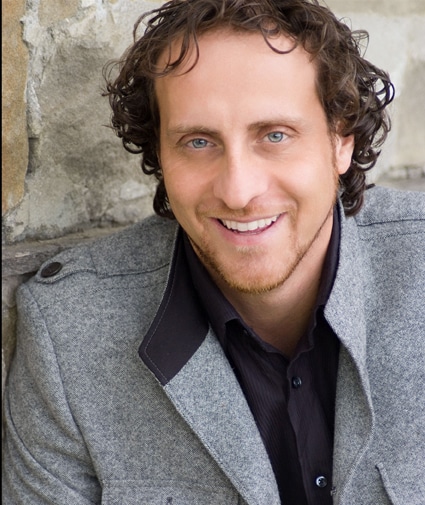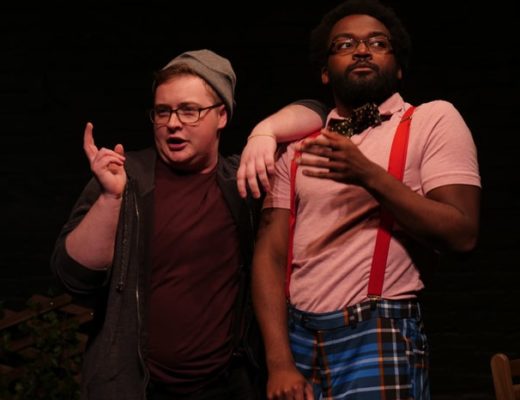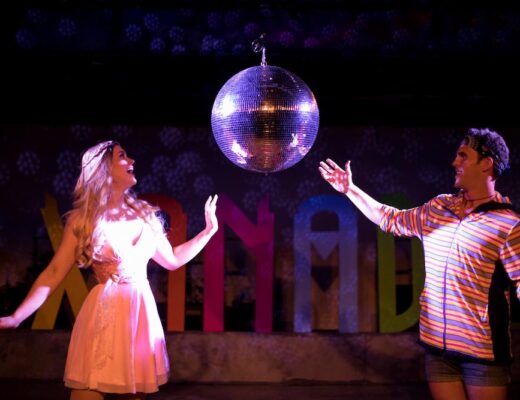This article was first published January 16, 2020 in DC Theatre Scene here.
A Thousand Splendid Suns, Khaled Hosseini’s best-selling novel, explores the lives of two Afghan women, Mariam and Laila, both living in war-torn Kabul and married to the same man, Rasheed. Ursula Rani Sarma’s script has been successfully staged at theatres in Canada, London, and California. On January 21st, this theatrical adaptation will be performed for the first time at Arena Stage in Washington, DC.
Haysam Kadri joins DCTS for a conversation about this production, his role as antagonist Rasheed, and his own work as artistic director of The Shakespeare Company in Calgary, Alberta.
How are rehearsals going?
It’s a good group. It’s always a good process with Carey Perloff (the director) at the helm.
What’s different about this production?
With any new script and any new story there’s an opportunity to discover things out of it. I run a Shakespeare Company back in Calgary. When you come back to a play you feel like you’re scratching the surface. This play is so topical now, it resonates with so many people. You travel around America and there’s an overwhelming response.
Every time I do this play I discover new things. I’ve been fortunate enough to do it in Canada as well. I’ve worn many hats for this play: there’s always something to unfold and discover. This will be my ninth or tenth time doing this production, so obviously, it’s doing something right.
You’ve also directed this production in London?
London, Ontario and Vancouver. It looks like it’s going to continue to have a life in Canada and in the States.
Every time a new person inhabits a new role, they bring a new element to it. You’re always finding different dynamics, interpretations of the line, a different action, energies are different, so if things change. The stories of Layla and Mariam are elevated. They resonate differently with different people and Carey takes what we do across the country. “I discovered this moment here. It might help the actor in this particular case.”
Any particular changes to the play when you move closer to the nation’s capital?
We’re a little closer to the political pulse; we’re in the middle of the political pulse. I’m curious to see how the audience is going to react. We discover new things in different cities. Audiences are different in Canada. American audiences seem to be very vocal, wanting to express how they feel during the show. Canadians seemed to be more reserved during the show. Americans are one degree away from the story— to Afghanistan. They have a different relationship to the political complexities of the story than Canadians. It’s very curious to see what the DC and surrounding audiences will take out of it.
With A Thousand Splendid Suns, how important is that you’re seeing a degree of diversity on stage?
What’s important is that we’re giving a voice to the people of Afghanistan, a different voice you don’t see in the media or the news. This is a story set in Afghanistan but this story could happen anywhere. There’s a lot of domestic violence in the play, which is not reserved for one part of the world.
As we start to go and we start to see the voice of Afghan people, you start to see audiences that can relate to those characters. It’s not them and us. It’s a universal story.
This will be our ninth production of this play. It’s not a tour. We’ve spent over 3 1/2 years. It’s been a long process, page to stage. Audiences have been quite affected by it. We’re really excited to have 11 diverse people on that stage of South Asian and Middle Eastern extraction. When you get that, it doesn’t happen often.
Do you recommend the play for someone who hasn’t read the book?
You don’t need to read it. Actually, it’s one of those books you can’t put down; it’s a quick read. It has a built-in audience. it’s always difficult to transpose a novel into a play, to distill it into two hours, but I think we have a very successful adaptation on our hands.
Tell us about your role as Rasheed.
Rasheed is very interesting character. The audience won’t like him, I will say that. What’s important is to find the humanity in a character that has not many redeeming qualities, and that’s been the challenge as an actor, to make this individual three dimensional human being. He does say things that are off-putting and actually offensive. What’s more important to me is to make this person a human being. He’s also a victim of society and ideology and a lot of the insecurities that he goes through are circumstances.
How do you see the audience respond to him?
His version of love is distorted. His version of love is based out of a fear. He thinks he’s doing everything right. What makes a guy like Rasheed a villain is that people see his version of love and they’re just appalled by it. It’s quite an interesting character study and interesting to see audiences react. You feel the vitriol.
What’s something about you we won’t be able to find on Google?
I have three daughters. I love being a dad. [Thousand Splendid Suns] is a story about two women. I’m surrounded by women in my household. This play resonates when you see the friendship of two women: the adversity, the harrowing tale that they go through and the sacrifice of love. I think about my kids and it’s hard to be away from my family, but this play really puts into perspective the privileges we have in this part of the world. I don’t take for granted what it is to live in the western part of the world. Puts things into perspective as the father of three girls.
And I’m a Nationals fan. The Expo’s were my team when they moved.
What about your work as artistic director for The Shakespeare Company in Calgary?
Shakespeare became one of those things; I fell in love with it. I threw my art into the classical works. When I got to Calgary, it was just serendipitous. I got back and auditioned for the artistic producer role: It’s been 7 years [I’ve worked] as an artistic producer. And Carey Perloff just directed our version of Merchant of Venice.
You also have something called Hammered Hamlet?
I’m always finding ways to make Shakespeare accessible. There’s always a stigma, because it’s taught in English class and taught in academic exercises, it’s quite a dry biscuit to swallow so we do shows that excite and inspire. And sometimes we do shows that entertain. We do shows where 3 of the 5 actors take shots in front of the audience before the show and we auction off to a king and queen of the house to dictate when the next shot goes. They’ll stop the play to say when the actors get to take another shot.
Let me tell you, Shakespeare sober is already quite a complex exercises. It was brilliant. We sold out three weeks before we opened.
It’s a novelty concept. We sprinkle that in there with our traditional shows. It brings a different demographic of people. We saw a completely different audience base. It was an exciting experiment and we learned a lot.
You aim to deliver a different accessibility to Shakespeare?
When high school students read it in English, it’s such a dry exercise because it’s being taught as an academic exercise. It’s taught cognitively and not creatively. Our attention spans are really short. To sit down for three hours and hear English as a second language, it’s a tall task to ask from an audience, in my humble opinion.
What we’ve done is we’ve reverse the stigma and the perception by calling it “Lean and Mean Shakespeare,” by making it exciting and by doing those little things: drunk Shakespeare, we did a zombie Shakespeare (people afflicted by the plague). We brought in a younger demographic and build up future audiences. We also do traditional shows: period and hard-hitting Shakespeare.
I did a version of Hamlet and took it down to 2 hours and 10 minutes.
Thank you!
Exactly! Because I’m interested in making it accessible to a wider range of people. There are very few people, I’m gonna be honest, who are going to want to sit through a three and a half hour Shakespeare without getting bored. It hurts me to slash it, but you want to make it exciting and you want to bring people to the theatre. It makes a difference that people go into a show and 7 and are out by 9:15 pm. Psychologically, that’s a big deal. “Great, I’m gonna go to another one.”





No Comments